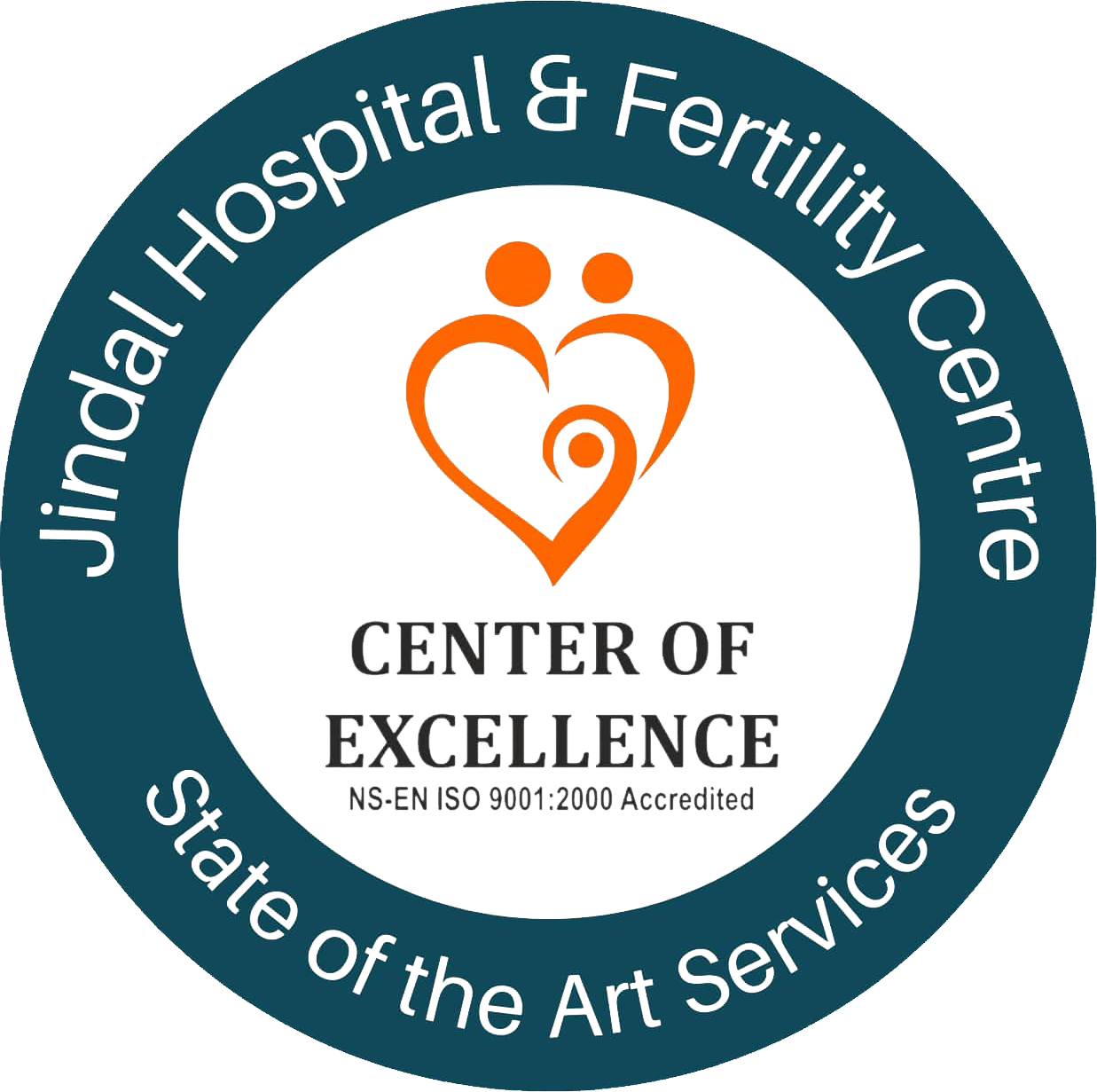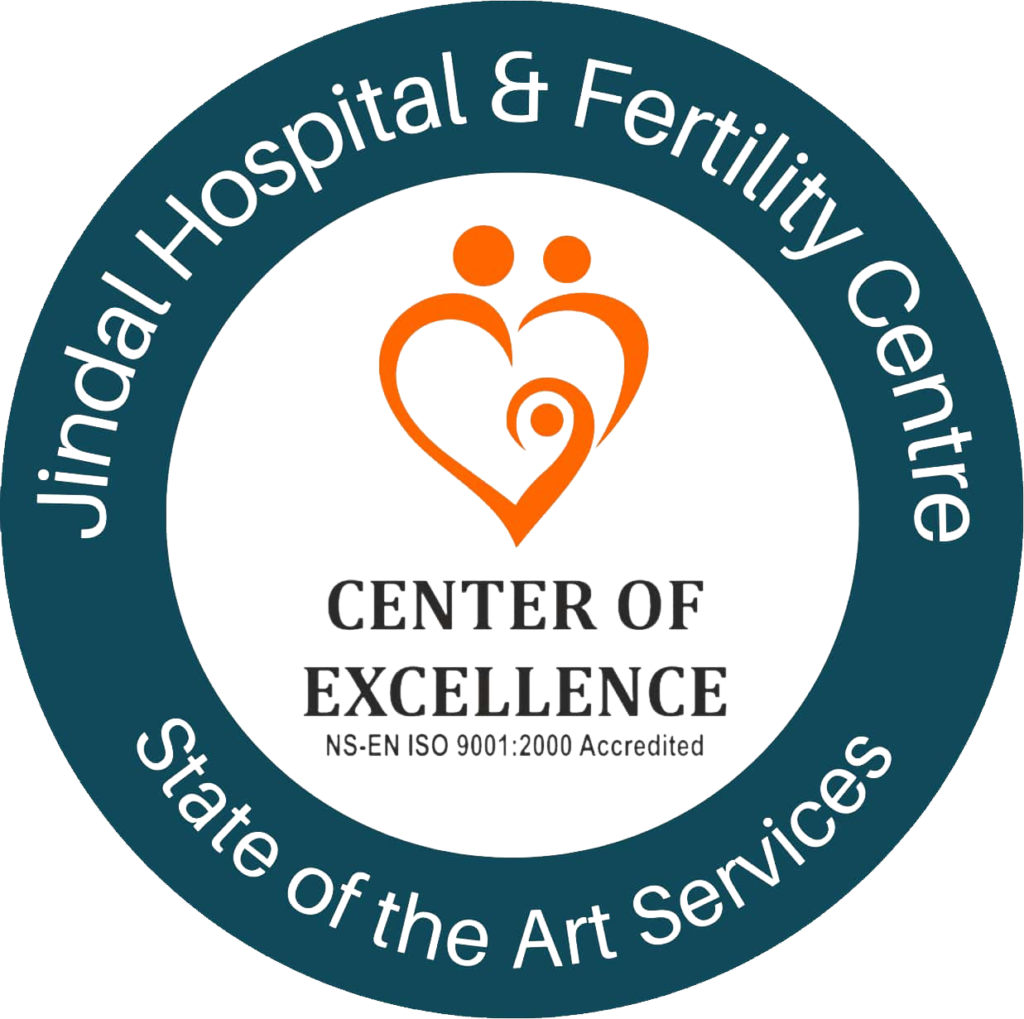
Overview
Why is it done?
Why choose us
FAQs
Overview
Understanding Female Infertility
Infertility is characterized by the inability to conceive despite regular, unprotected intercourse for at least a year. In about one-third of cases, female factors alone contribute to infertility, while another third involves both male and female factors. The remaining cases have causes that are either unknown or a combination of factors from both partners. Symptoms of Female Infertility The primary symptom of infertility is the inability to achieve pregnancy. Additionally, irregular menstrual cycles, characterized by cycles longer than 35 days, shorter than 21 days, irregular, or absent periods, may indicate a lack of ovulation. These symptoms often occur without any other noticeable signs. When to Seek Medical Help The timing for seeking medical assistance varies based on age:
Infertility is characterized by the inability to conceive despite regular, unprotected intercourse for at least a year. In about one-third of cases, female factors alone contribute to infertility, while another third involves both male and female factors. The remaining cases have causes that are either unknown or a combination of factors from both partners. Symptoms of Female Infertility The primary symptom of infertility is the inability to achieve pregnancy. Additionally, irregular menstrual cycles, characterized by cycles longer than 35 days, shorter than 21 days, irregular, or absent periods, may indicate a lack of ovulation. These symptoms often occur without any other noticeable signs. When to Seek Medical Help The timing for seeking medical assistance varies based on age:
- For individuals up to age 35, doctors often recommend attempting conception for at least a year before considering testing or treatment.
- If between 35 and 40, it’s advisable to discuss concerns after six months of trying.
- Women over 40 may consider testing or treatment promptly.
- There are known fertility issues for either partner.
- There is a history of irregular or painful periods.
- There have been previous instances of pelvic inflammatory disease.
- The individual has experienced repeated miscarriages or endometriosis.
- Cancer treatment or surgeries have been undergone.
- Ovulation: The release of a mature egg from the ovaries.
- Fertilization: Sperm must reach the egg in the fallopian tubes for fertilization to occur.
- Implantation: The fertilized egg attaches to the uterine lining for pregnancy to begin.
- Ovulation Disorders:
- Polycystic Ovary Syndrome (PCOS): A hormonal imbalance affecting ovulation, often linked with insulin resistance and obesity.
- Hypothalamic Dysfunction: Imbalances in hormones responsible for ovulation due to stress, extreme weight changes, or emotional factors.
- Primary Ovarian Insufficiency: Early loss of eggs from the ovaries, possibly due to autoimmune response, genetics, or chemotherapy.
- Excess Prolactin: Overproduction of prolactin, a hormone that affects estrogen levels, leading to reduced fertility.
- Damage to Fallopian Tubes:
- Pelvic Inflammatory Disease (PID): Infections of the reproductive tract, often due to sexually transmitted infections.
- Previous Abdominal or Pelvic Surgeries: Including surgeries for ectopic pregnancies, which can damage the fallopian tubes.
- Endometriosis: Growth of uterine tissue outside the uterus, causing scarring and blockages in the fallopian tubes.
- Uterine or Cervical Causes:
- Polyps or Tumors (Fibroids): Growths in the uterus that can block fallopian tubes or affect implantation.
- Congenital Uterine Abnormalities: Birth defects affecting the shape of the uterus, hindering conception.
- Cervical Factors: Narrowing of the cervix or inadequate cervical mucus, impeding sperm travel to the uterus.
- Unexplained Infertility:
- In some cases, despite thorough testing, the exact cause of infertility remains unknown, often attributed to multiple minor factors.
- Age: Fertility declines with age due to decreased egg quality and quantity, particularly after the mid-30s.
- Smoking: Damages the cervix, fallopian tubes, and ovaries, affecting fertility and increasing miscarriage risk.
- Weight: Both overweight and underweight conditions can disrupt ovulation and decrease fertility.
- Sexual History: Previous sexually transmitted infections can lead to fallopian tube damage.
- Alcohol Consumption: Excessive alcohol use can reduce fertility and harm fetal development during pregnancy.
- Maintain a Healthy Weight: Achieving a healthy BMI can enhance ovulation and increase chances of conception.
- Quit Smoking: Tobacco negatively impacts fertility and overall health; quitting improves fertility outcomes.
- Limit Alcohol Consumption: Excessive alcohol intake can hinder fertility and harm fetal development.
- Stress Management: High stress levels may affect fertility; adopting stress-reduction techniques could be beneficial.
Why is it done?
Diagnosis and Treatment of Female Infertility
If you and your partner have been trying to conceive without success, seeking medical evaluation for infertility is the next step. Here’s what you can expect during the diagnosis process and the various treatment options available: Diagnosis of Female Infertility
If you and your partner have been trying to conceive without success, seeking medical evaluation for infertility is the next step. Here’s what you can expect during the diagnosis process and the various treatment options available: Diagnosis of Female Infertility
- Medical History and Physical Examination:
- Your doctor will begin by taking a detailed medical history from both you and your partner.
- A thorough physical examination will also be conducted to assess any visible signs of reproductive issues.
- Fertility Tests:
- Ovulation Testing:
- At-home ovulation prediction kits detect the surge in luteinizing hormone (LH) before ovulation.
- Blood tests for progesterone post-ovulation can confirm ovulation.
- Other hormone levels such as prolactin might also be checked.
- Hysterosalpingography (HSG):
- This procedure involves injecting X-ray contrast into the uterus to check for abnormalities.
- It also shows if the contrast flows out of the uterus and spills from the fallopian tubes.
- Ovarian Reserve Testing:
- Evaluates the quantity and quality of eggs available for ovulation.
- Important for women at risk of diminished egg supply, especially those over 35.
- Other Hormone Testing:
- Assesses levels of ovulatory hormones, as well as thyroid and pituitary hormones.
- Imaging Tests:
- Pelvic ultrasound to look for uterine or fallopian tube issues.
- Sonohysterogram or hysteroscopy to visualize the uterus in more detail.
- Hysterosalpingography (HSG):
- Involves the injection of a contrast material to outline the uterine cavity and fallopian tubes in X-ray images.
- Rarely Used:
- Laparoscopy: Minimally invasive surgery to examine the reproductive organs for abnormalities.
- Genetic Testing: Detects genetic changes that might contribute to infertility.
- Ovulation Testing:
- Medications to Restore Fertility:
- Clomiphene Citrate:
- Stimulates ovulation by inducing the release of follicle-stimulating hormone (FSH) and luteinizing hormone (LH).
- Often the first-line treatment for women under 39 without polycystic ovary syndrome (PCOS).
- Gonadotropins:
- Injected medications that stimulate the ovaries to produce multiple eggs.
- Includes human menopausal gonadotropin (hMG) and FSH injections.
- Metformin:
- Used when insulin resistance is a factor, often seen in women with PCOS.
- Improves insulin sensitivity and promotes ovulation.
- Letrozole:
- An aromatase inhibitor similar to clomiphene, often used for women under 39 with PCOS.
- Bromocriptine:
- Prescribed for excess prolactin production (hyperprolactinemia) that affects ovulation.
- Clomiphene Citrate:
- Risks of Fertility Drugs:
- Multiples Pregnancy: Higher risk with injectable medications, increasing chances of twins, triplets, or more.
- Ovarian Hyperstimulation Syndrome (OHSS):
- Rare complication causing swollen and painful ovaries, nausea, and abdominal discomfort.
- Long-term Ovarian Tumor Risks: Studies suggest a slight increase in ovarian tumors after prolonged use.
- Surgery to Restore Fertility:
- Laparoscopic or Hysteroscopic Surgery:
- Corrects uterine anatomical issues, removes polyps, fibroids, or adhesions.
- Tubal Surgeries:
- Performed with the aim to open blocked fallopian tubes or create new openings.
- Laparoscopic or Hysteroscopic Surgery:
- Reproductive Assistance Techniques:
- Intrauterine Insemination (IUI):
- Places healthy sperm directly into the uterus during ovulation.
- Assisted Reproductive Technology (ART):
- Includes In Vitro Fertilization (IVF), where mature eggs are fertilized outside the body and implanted into the uterus.
- IVF & ICSI (Intra Cytoplasmic Sperm Injection) is highly effective but involves a series of hormone injections, frequent monitoring, and embryo transfer procedures.
- Intrauterine Insemination (IUI):
- Education: Learn about the fertility treatment process to alleviate anxiety and make informed decisions.
- Support System: Lean on your partner, family, friends, or join online support groups for emotional support.
- Healthy Lifestyle: Maintain a balanced diet, engage in moderate exercise, and focus on overall well-being.
- Exploring Options: Consider alternative paths such as adoption or donor options early in the process to manage expectations.
Why choose us
Why Choose Jindal Hospital & Fertility Centre for Female Infertility
When facing the challenges of female infertility, choosing the right healthcare provider is crucial. Here are compelling reasons to consider Jindal Hospital & Fertility Centre as your trusted partner in your fertility journey:
When facing the challenges of female infertility, choosing the right healthcare provider is crucial. Here are compelling reasons to consider Jindal Hospital & Fertility Centre as your trusted partner in your fertility journey:
- Expertise in Reproductive Medicine:
- Jindal Hospital & Fertility Centre boasts a team of highly experienced and skilled reproductive specialists.
- Our doctors, including Dr. Sunil Jindal and Dr. Anshu Jindal, are leaders in the field of reproductive medicine, with extensive training and expertise in diagnosing and treating female infertility.
- Comprehensive Diagnostic Services:
- We offer a wide range of advanced diagnostic tests to pinpoint the underlying causes of infertility.
- From hormone testing to imaging studies such as 3 D Sonography, saline salpingography, hysterosalpingography, genetic testings we utilize state-of-the-art technologies to provide accurate and thorough evaluations.
- Personalized Treatment Plans:
- At Jindal Hospital, we understand that each patient is unique, and one-size-fits-all approaches do not apply to fertility treatment.
- Sunil Jindal, Dr. Anshu Jindal, and our specialists tailor treatment plans to suit your specific needs, medical history, and fertility goals.
- Cutting-Edge Fertility Treatments:
- We are at the forefront of fertility care, offering the latest advancements in reproductive technologies.
- Whether you require ovulation induction, intrauterine insemination (IUI), or in vitro fertilization (IVF), ICSI, blastocyst transfer, vitrification, and most advanced fertility treatment available in the world today. Dr. Sunil Jindal and Dr. Anshu Jindal provide a full spectrum of fertility treatments.
- Laparoscopic – Hysteroscopic- Microscopic fertility enhancing surgeries.
- State-of-the-Art Facilities:
- Our hospital is equipped with modern, cutting-edge facilities designed to offer the highest standards of care.
- From advanced laboratories for fertility testing to comfortable recovery rooms, we ensure a safe and supportive environment for your treatment.
- High Success Rates:
- Jindal Hospital & Fertility Centre, under the guidance of Dr. Sunil Jindal and Dr. Anshu Jindal, has a track record of success in helping countless couples achieve their dream of parenthood.
- Our focus on excellence in care, coupled with the latest techniques, has resulted in high success rates for many of our patients.
- Emotional Support and Counseling:
- Dealing with infertility can be emotionally taxing, and we understand the importance of emotional support.
- Sunil Jindal, Dr. Anshu Jindal, and our compassionate team provide counseling services and support throughout your fertility journey, ensuring you feel heard, understood, and cared for.
- Holistic Approach to Wellness:
- We believe in a holistic approach to fertility care, addressing not just the physical aspects but also the emotional and mental well-being of our patients.
- Sunil Jindal and Dr. Anshu Jindal, along with our team, provide comprehensive care plans that may include nutrition guidance, stress management techniques, and lifestyle recommendations to optimize fertility.
- Transparent Communication and Patient Education:
- At Jindal Hospital, we prioritize clear and open communication with our patients.
- Sunil Jindal, Dr. Anshu Jindal, and our team take the time to educate you about your condition, treatment options, and expected outcomes, empowering you to make informed decisions about your fertility care.
- Positive Patient Experiences:
- Many patients have shared their success stories and positive experiences at Jindal Hospital & Fertility Centre.
- Our commitment to compassionate care, coupled with exceptional medical expertise from Dr. Sunil Jindal and Dr. Anshu Jindal, has earned us the trust and loyalty of our patients.
FAQs

